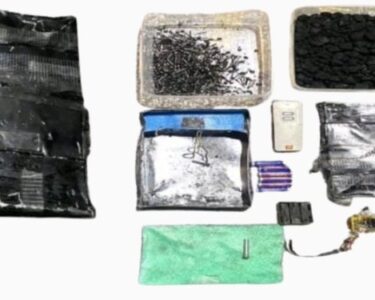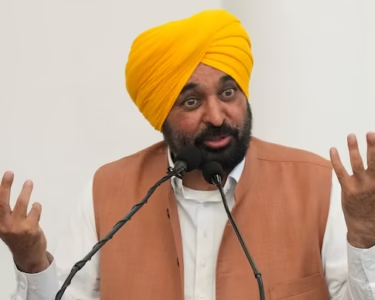Chandigarh:— In a significant step toward tackling organized crime with international links, Chandigarh Police has started compiling detailed criminal profiles of fugitive gangsters currently hiding in foreign countries. The initiative aims to assist national and international agencies in locating and extraditing some of the most wanted criminals connected to drug trafficking, contract killings, extortion, and high-profile attacks.
This ongoing operation marks the first time Chandigarh Police is systematically preparing an exhaustive criminal dossier targeting gangsters operating beyond Indian borders. These files will include everything from personal details and photographs to their criminal records, court cases, networks, and suspected hideouts. Once complete, the dossier will be handed over to the Central Bureau of Investigation (CBI), which has been designated as the nodal agency for extradition cases by the Union Ministry of Home Affairs.
Four Notorious Names Top the List
At the center of this crackdown are four major figures known for their links to the Lawrence Bishnoi gang: Anmol Bishnoi, Goldy Brar, Rohit Godara, and Randeep Malik. All four are accused of serious crimes and are believed to be orchestrating gang operations from abroad.
Anmol Bishnoi
Brother of Lawrence Bishnoi and a top figure in the network, Anmol is originally from Fazilka, Punjab. He is wanted in connection with the Sidhu Moosewala murder case, among other violent crimes. Using forged documents, he traveled through several countries before landing in the U.S., where he was recently detained in Alaska. The National Investigation Agency (NIA) has declared a reward of ₹10 lakh on him.
Goldy Brar
Identified as a close associate of Lawrence Bishnoi, Goldy Brar—whose real name is Satinder Jeet Singh—is considered one of the masterminds behind multiple murders across India. A Canadian national, he is accused of coordinating the assassination of Sidhu Moosewala while managing other gang operations from North America. In January 2024, he was officially listed as a terrorist under the UAPA.
Rohit Godara
A notorious name from Rajasthan’s Bikaner district, Godara has been linked to over 30 criminal cases, including the murder of Karni Sena leader Sukhdev Singh Gogamedi and a shooting incident at actress Disha Patani’s residence. A longtime associate of the Bishnoi network, he fled India using a fake passport and is suspected to be in Europe, with activities reported in Portugal and the U.S.
Randeep Malik
Known for his involvement in the 2024 nightclub blasts in Chandigarh and Gurugram, Malik hails from Jind, Haryana. He was previously implicated in the murder of a gym owner in Delhi and fled India in 2014. Though he returned briefly in 2018, he is currently based in the United States, where he was arrested by the FBI in August 2025. Reports suggest he had been operating a transport business under the alias “Mahakal.”
Ministry’s Push for Swift Extradition
Union Home Minister Amit Shah has instructed all state and central agencies to accelerate the process of bringing back Indian fugitives. As part of this directive, standard protocols are being drafted in coordination with the Intelligence Bureau (IB) and the National Investigation Agency (NIA). Special legal teams and investigators are also being formed to streamline the extradition process and handle diplomatic coordination with the countries where these criminals are hiding.
What the Dossier Includes
The dossier being developed by Chandigarh Police is far more than a list of names. It will serve as a complete investigative record, incorporating FIR numbers, past arrests, court proceedings, statements made during interrogations, surveillance inputs, and known associates or business fronts. It will also include visual identification and detailed timelines of their movements inside and outside India.
Officials have confirmed that the data compilation is already underway and is expected to be finalized within a month. Once submitted to the CBI, it will be used as the foundation for legal proceedings and formal extradition requests via Interpol and foreign judicial systems.
This proactive strategy by Chandigarh Police is seen as a model for other states in curbing the influence of organized crime syndicates operating across international borders. The aim is not only to bring fugitives to justice but also to disrupt the network of operations that continue to affect law and order in India.






